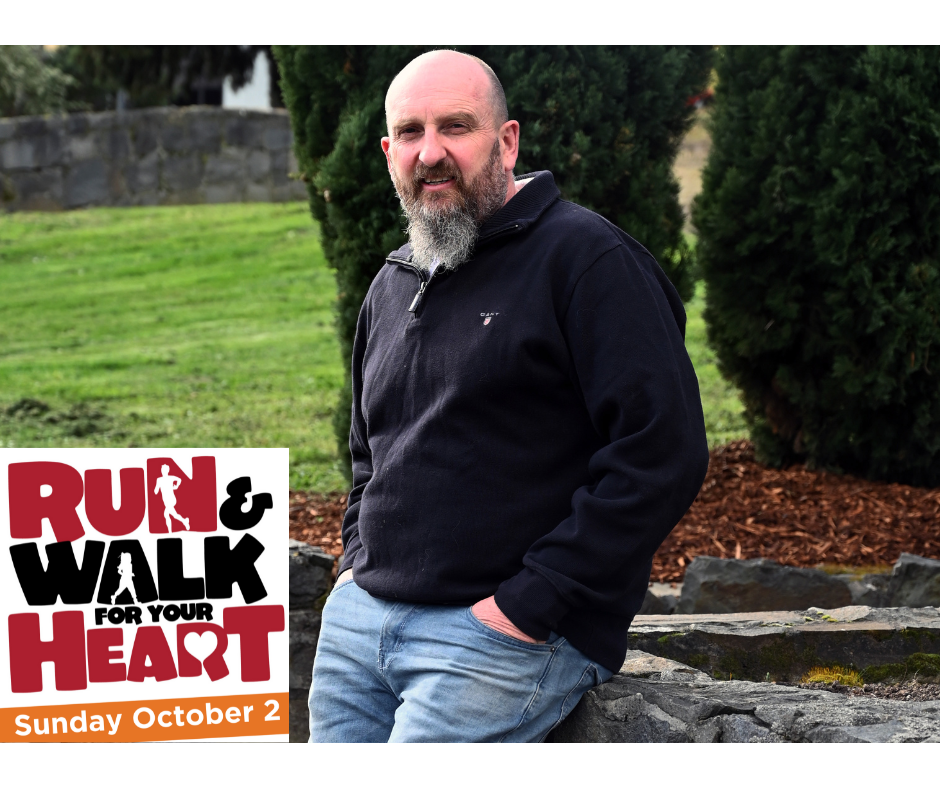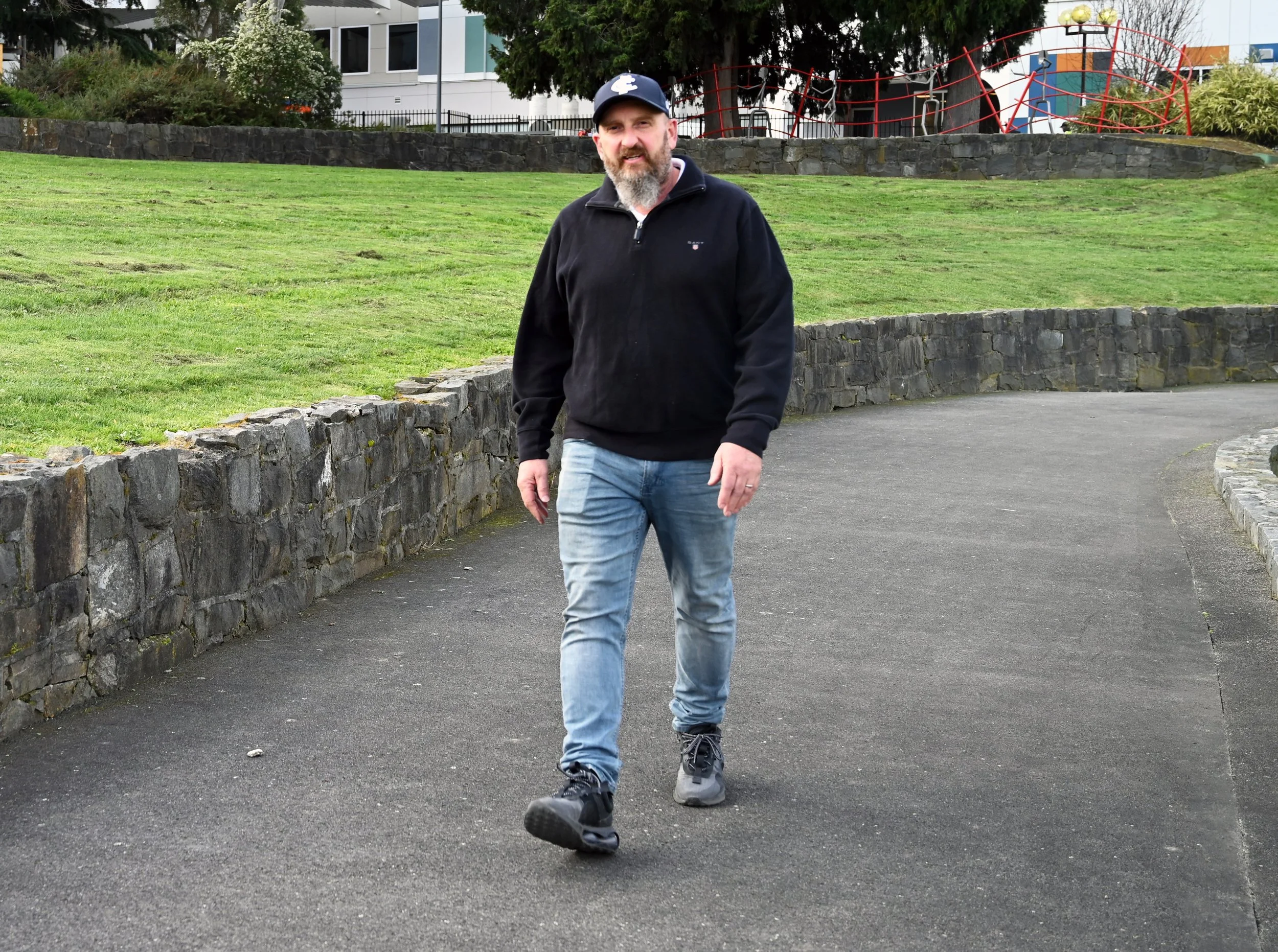There was a 5% chance Dale would survive his cardiac arrest.
“I may never have been able to prevent what happened to me, but the actions of those around me that day without a doubt saved my life.”
- Dale Hodgman, Heart Health Ambassador
Dale Hodgman knew nothing about his cardiac arrest until he woke up in the Launceston General Hospital, surrounded by doctors.
An electrical problem in the heart that occurs when the organ suddenly stops pumping blood, the chance of surviving a sudden cardiac arrest when it occurs outside of a hospital is less than 5%.
Lucky for Dale, who was 47 at the time of his incident and working as a kitchen builder, his cardiac arrest occurred at his workplace and his colleagues had recently taken a first aid course.
It is their quick actions which are credited for saving Dale’s life, who was clinically dead for almost 7 minutes before his heartbeat was recovered.
Two years on from the incident that changed his life forever, Dale is sharing his story to raise awareness of heart health and recognising the signs of cardiac arrest – and knowing what to do.
Talk us through that day
“It was a normal day. I’d been out on site, under a floor in a house and then come back to the workshop,” Dale explained.
“The last thing I remember I was walking towards the workshop roller door ... that was it.”
Dale had collapsed and his heart was not beating. He was discovered unconscious, and unresponsive.
His colleagues immediately called Triple O and commenced chest compressions.
Dale Hodgman will be joining us on Sunday, October 2 for our Run & Walk for Your Heart Event.
“Our staff had gone and done a first aid course about 12 months earlier,” Dale said.
“So, they weren’t experts on what to do, but I think it made a big difference.”
Paramedic arrived soon after and were able to recover Dale’s heartbeat.
He was taken straight to the LGH. When he woke up two days later he said it all felt like a bad dream.
“I was out for a couple of days,” he said.
“I didn’t know what had happened when I finally came to.”
Were there any warning signs?
Because sudden cardiac arrest is so often linked with heart disease, the same factors that put you at risk of heart disease can also put you at risk of sudden cardiac arrest.
These include family history, smoking, high blood pressure, obesity, diabetes and an inactive lifestyle.
For Dale, his cardiac arrest came completely out of the blue.
“I just couldn’t believe it, when the doctors told me what had happened,” he said.
“I didn’t have any heart pain, any of the tell-tale signs.
“I am a pretty active person. A little overweight, but other than that I ride mountain bikes, all sorts of different things.
“So it was really sudden and scary.”
Sudden cardiac arrest is not the same thing as a heart attack
Sudden cardiac arrest occurs when the heart abruptly stops pumping due to an interruption of normal heart impulses.
A heart attack is the final stage of heart disease, which is the slowing and then stopping of blood flow to the heart muscle.
So, unlike a heart attack there are often no warning signs for a sudden cardiac arrest.
“For me, I’d always been taught about the things you should be looking out for – pains in the chest and things like that, but this was ‘light’s out’,” Dale explained.
“It took me a long time to come to terms with what had happened to me. I am still coming to terms with it.”
How has your outlook on life changed since your cardiac arrest?
“It’s been two years, but it is all still very raw,” Dale said.
“Talking about it still to this day ... brings up a lot of emotions.
“For me, I don’t really remember it, but for my workmates and wife who witnessed it, it was really traumatic.
“I’ve also had to come to terms with the fact that this could happen again.
“So the mental impact, as well as the physical, has been significant.”
What is the message you would like to share?
“I may never have been able to prevent what happened to me, but the actions of those around me that day without a doubt saved my life,” he said.
“If the people around us don’t have CPR training, if people don’t have access to a defib, these things can end very differently.
“It’s about knowing what to do if this happens to someone close to you.
“I now have the AED [automated external defibrillator] locater app on my phone and I would encourage everyone I meet to do a first aid course.”
Will you be joining us on October 2 for Run & Walk for Your Heart?
“I went along last year, by myself. It was almost year to the day since my incident and I just felt like it was something I needed to do,” he said.
“I am definitely hoping to come along again this year and bring some friends along this time.”



